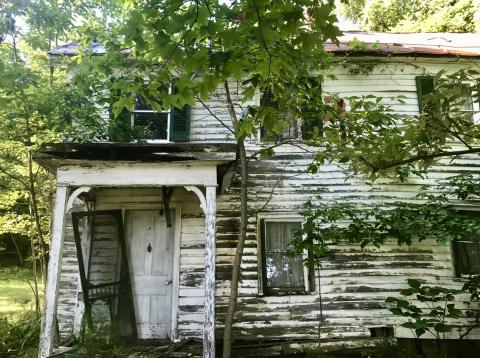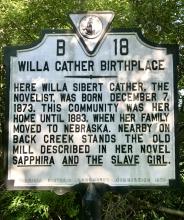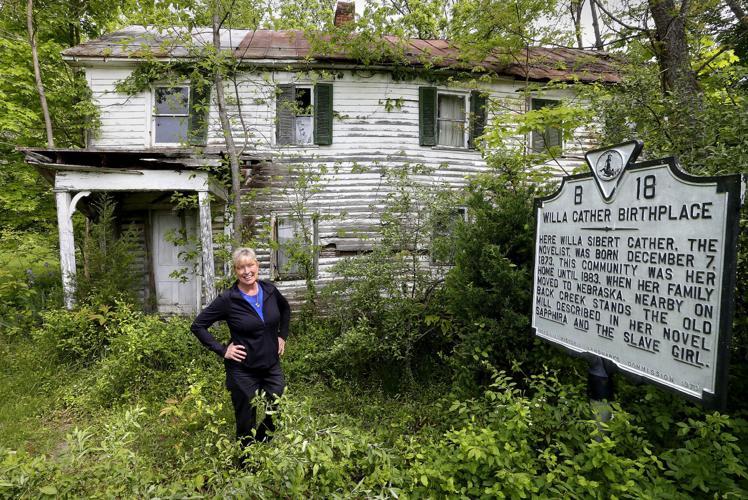
Support the Willa Cather Birthplace Fund
As American author Willa Cather’s 150th approaches, her birth home, a rural farmhouse in the Shenandoah Valley of Virginia, was at risk of collapse. The original wooden structure, which has fallen into disrepair, will require significant restoration in order to be saved.
In May 2023, Virginia realtor Katherine Solenberger purchased the house to ensure its stabilization and preservation. Her intention is to donate the property to Willa Cather's Virginia, a Virginia-based nonprofit that has recently been formed to receive the house for restoration and promotion of Cather's Virginia legacy. The Willa Cather Foundation is proud to be working collaboratively with Willa Cather’s Virginia to assist in planning for the site’s stabilization and eventual restoration and programming.
The Cather birthplace remains a testament to the humble, rural origins of a great writer who, toward the end of her life, struggled to write the story of her home state. Sapphira and the Slave Girl (1940) is of increasing interest to contemporary Cather scholars, and the preservation of this birthplace could attract more visitors to explore the beauty and complexity of Cather’s Shenandoah Valley home.
As a child of Virginia’s difficult post-Civil War Reconstruction, young Willa was surrounded by family members who, in her father’s family, had supported the Union and, in her mother’s family, had fought in the Confederate army. Cather’s maternal grandmother, Rachel Seibert Boak, was the inspiration for Rachel Blake in Sapphira, who assists a young enslaved woman escape captivity.
The birthplace has been on the National Register of Historic Places since 1978. It was the home of Rachel Seibert Boak (Cather’s maternal grandmother). Also known as the Rachel E. Boak House, the site has fallen into disrepair, subjected to neglect of time and the elements. While the structure is still intact, with many of its original features, the cost to restore this site will no doubt be significant. Your donation will help with future efforts to rehabilitate the original wooden structure and elevate Cather’s legacy in Virginia.
Willa Cather last visited the region of her early childhood in the 1930s while doing research for her final novel Sapphira and the Slave Girl, which she described as the most difficult book she ever wrote. Her family stories and memories of the region are entangled in the book, which was an attempt to confront the slaveholding realities in her family’s past.

Gifts to the “Willa Cather Birthplace Fund” will support the stabilization and preservation of the Willa Cather Birthplace.

Birthplace Acquired
The Willa Cather Birthplace property is now in the hands of a woman with an extensive background in historic preservation. As chronicled in The Winchester Star, local real estate agent and preservationist Katherine Solenberger purchased the birthplace to ensure its preservation. She plans to donate the 5.87 acre property in Gore, Virginia—which includes two homes, one of which is the birthplace of Willa Cather—to Willa Cather’s Virginia, a nonprofit corporation that has recently been formed to receive the house for restoration and promotion of Cather’s Virginia legacy.
